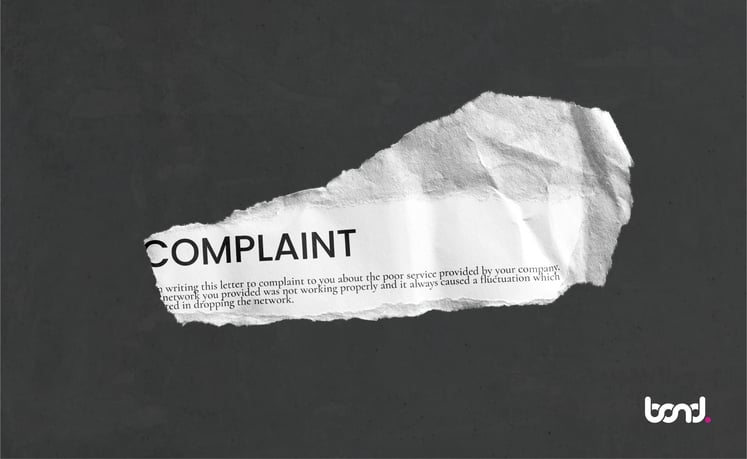Bond EMEA
MIND THE GAP


Can complaints be an opportunity to create bonds with customers?
Unsatisfied customers share their negative experiences with a brand three times more than satisfied customers share their positive experiences. And nowadays, these comments reach the masses more easily and quickly due to social media.
Inconveniences, complaints and claims are part of the customer journey, as sometimes customers are disappointed when the product or service they purchase does not meet their expectations. These uncomfortable moments can occur at any point during the interaction between the customer and the company, becoming a very critical interaction which needs to be addressed promptly. We commonly refer to this type of moments as the "moment of truth" (MOT).
An improperly managed complaint can have a very negative impact, not only on the customer, but also on the company. The most common are the following:
1. Increase of customer disappointment after the management, what leads to loss of confidence.
2. Deterioration of the brand image due to negative comments through online reviews, social networks or word of mouth.
3. Loss of current dissatisfied customers or potential customers influenced by the bad brand image that has been generated.
4. Lower customer retention as a consequence of all of the above.
In contrast, when a complaint is correctly managed and it’s focused on the customer, a positive impact is generated, such as:
1) Long-term loyalty of the customer whose complaint has been resolved correctly. This does not always mean that the customer has been proved right, but that the reasons that led to the resolution have been explained. Customers are more understanding than we think when they are given a quick and effective explanation. According to several studies, 70% of customers who have had problems with companies and have had them resolved effectively become loyal customers.
2) Favorable brand reputation from comments about positive experiences in online reviews, social networks or any other form of dissemination. Nearly 90% of consumers read online reviews before making purchasing decisions, so online reputation is a very important variable in monitoring the voice of the customer.
3) Improvement of the quality of the service or product through feedback for continuous improvement. Customers themselves contact the company proactively and propose ways to improve, becoming "auditors" for the brand in some cases.
While there are no magic formulas that apply to all sectors and types of customers, there are some general recommendations:
I. Most customers expect a response to their complaints within 24 hours or less. This does not mean that they demand a resolution within that time, but rather that they want to see some kind of response or reaction from the company: acknowledgement of receipt, etc. The speed of response is crucial when it comes to customer satisfaction.
II. Nearly 50% of customers expect their problems to be resolved immediately during the first interaction with the company, so people handling these types of issues need to be very focused on delivering the very best customer experience.
In conclusion, the correct management of a complaint not only solves one specific customer problem, but also contributes to building strong and lasting bonds between the company and the customer, and is essential to remain competitive in the market.
If you would like to discover specific opportunities in your complaint management, you can contact us via information@bondbl.com